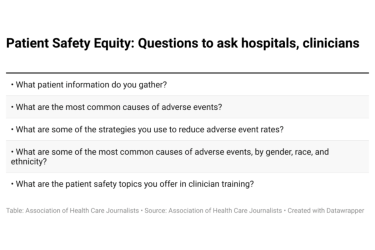
The massive $1.3 trillion omnibus spending bill was signed by President Trump on Friday and is now law. Several provisions within the 2,200-plus pages of legislation maintain or increase funding for programs and services that benefit older adults.
The spending bill provides $4.5 million in health promotion for Alzheimer’s disease and $2 million for initiatives to prevent falls among older people, according to a story in McKnight’s Senior Living.
Research funding on Alzheimer’s disease received a $414 million boost. The legislation also reauthorizes and expands the Missing Alzheimer’s Disease Patient Alert Program, also known as the “Silver Alert” program. It includes funding for health care and law enforcement agency training for planning and implementation of programs for people who wander, including older adults or those with mental illnesses or autism.
The National Institute on Aging received just over $2.5 billion. Of note: senior nutrition efforts get a small boost – one provision mandates the Administration for Community Living to begin setting aside 1 percent of its funding under the Older Americans Act to develop and implement evidence-based practices for enhancing senior nutrition. Money to battle the opioid epidemic increased, as was the Senior Medicare Patrol program to fight health care fraud and abuse. Vital funding for State Health Insurance Assistance Programs, which benefit millions of Medicare beneficiaries, remained in the budget, according to Reuters.
Gabriel Levy of U.S. News provides a good overview of budget funding for various health care initiatives.
Several organizations whose work benefits from aging-related funding praised the budget package. In a statement, the American Psychological Association said that the $3 billion increase for the National Institutes of Health “will accelerate our fundamental understanding of such challenging health conditions as Alzheimer’s disease, substance use and pain, giving patients alternatives to pharmacological treatments.” The National Council for Behavioral Health applauded Congress for recognizing that many Americans can’t access needed behavioral and mental health treatment. Older adults with mental health issues are particularly prone to misdiagnosis or are ignored altogether, as this AHCJ tip sheet points out.
Older adults who reside in low-income housing may see some important benefits soon. HUD’s Rental Assistance Demonstration was expanded to include Section 202 Housing. Section 202 housing helps expand the supply of affordable housing with supportive services for the elderly.
“The new authority provides over 2,800 Section 202 nonprofit-sponsored communities nationwide, all serving Americans age 62 and older, with the ability to seek out private financing to meet capital repair needs in order to preserve this affordable housing well into the future,” according to a statement from Leading Age, an association of nonprofit providers of aging services. Another $105 million is included for more than 760 new affordable homes for low-income older Americans.
These are important steps forward, according to Linda Couch, Leading Age’s vice president of housing policy. She pointed out that the average income for older adults in the Section 202 program is $13,300. Nationally, nearly 15 percent of adults over 65, lived at or below the supplemental poverty level in 2016 according to the Kaiser Family Foundation.
Programs for people with disabilities, low-income home energy assistance (LIHEAP), and other home and community-based services also saw funding increases. As Gary Rotstein reported in the Pittsburgh Post-Gazette, despite fears by some aging advocates, several important community service programs, including Senior Corps, were not cut.
Not everyone is happy about adding trillions to the national debt. The conservative think tank Heritage Foundation issued a detailed report stating the massive bill “represents everything that’s wrong with Washington.” However, both Speaker Paul Ryan and Minority Leader Chuck Schumer say they are basically happy with the outcome. As they separately stated, in a bill this big no one gets everything they want, and everyone had to compromise.
Journalists may want to talk with directors of local senior housing and health programs for a community-level look at how the budget could affect local services. Ask:
- What are they doing to maximize reach and impact as they attempt to do more with perhaps the same or less funding?
- For those whose programs may get a financial boost, how do they plan to expand their scope?










